It was a daunting prospect from the start: two little girls not really accustomed to strenuous activity, a nine-kilometer hike that was always slightly inclined and sometimes quite steep, and an un-Polish-ly hot sun. It was an outing I’d been keeping in the back of my mind from the beginning of our visit: a hike up Dolina Chochołowska (Chochołowska Valley) to Polana Chochołowska (Chochołowska Glade).
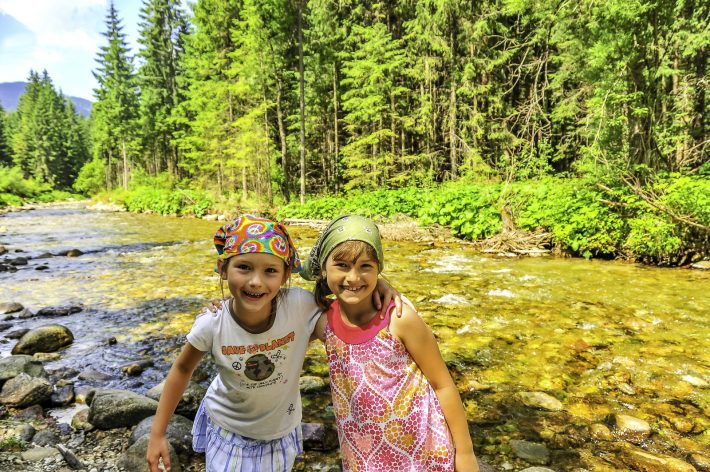
Dolina Chochołowska is one of several tourist routes that promises a relatively easy walk for most everyone. Much of the lovely path, which winds along a mountain stream most of the way, is paved, and there are alternatives to walking for those who don’t feel up to it. It’s a long walk, in other words, but it’s entirely possible for two little girls to make it up the whole path on their own. Indeed, families make the walk pushing strollers, and I saw one man with arms the size of trees rolling up in a wheel chair. In other words, it’s accessible.
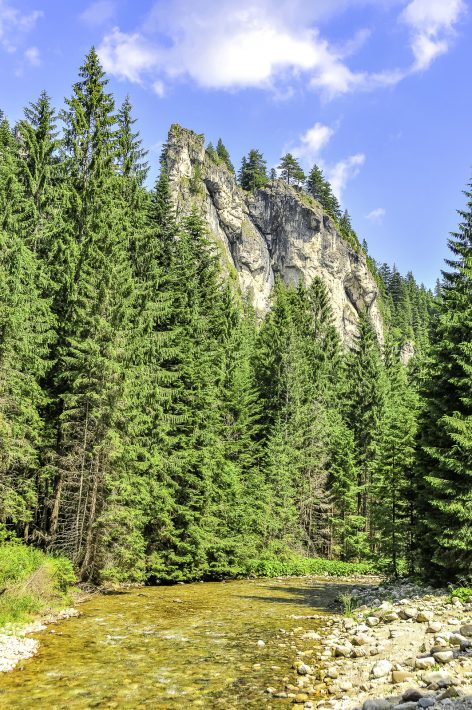
Not to mention beautiful. Most of the path runs just beside a stream, and cliffs jut out on either side of the valley, which is nestled in a coniferous forest. The stream today served as a constant distraction to the tiring walk: the girls wanted to scramble among the rocks along the bank at every possible occasion, and given the fact that I wanted the outing to be truly fun and not just an exercise in, well, exercise, I let them head to the stream whenever they wanted. They pretended to rescue stranded fish, save threatened turtles, and plan bridges and dams.
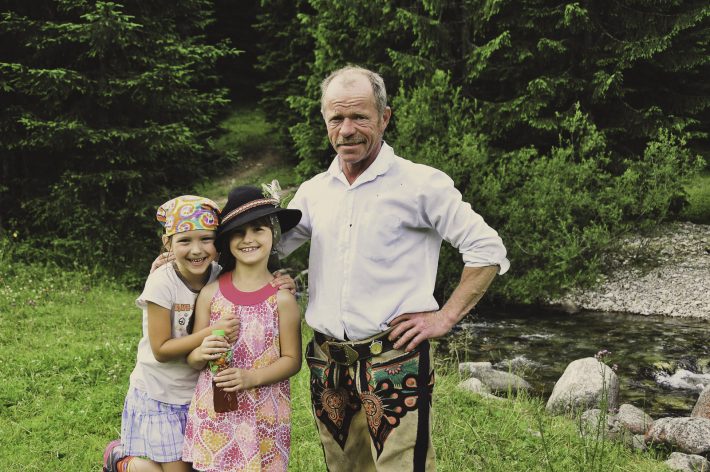
Along the way, we met a few people who use the stream for more practical purposes. We happened across Mr. Andrzej, a shepherd who was fetching a wooden bucket of water for drinking and adding water for rinsing clothes in a second, plastic bucket. He runs a bacówka, a small hut in which shepherds sleep and make the incredibly delicious local smoked cheese, oscypek. His bacówka is right on the tourist path, so he gets a lot of business and brings his whole family to help. His wife was waiting impatiently for him at the door but he paused long enough to talk to us a moment and let us take a picture.
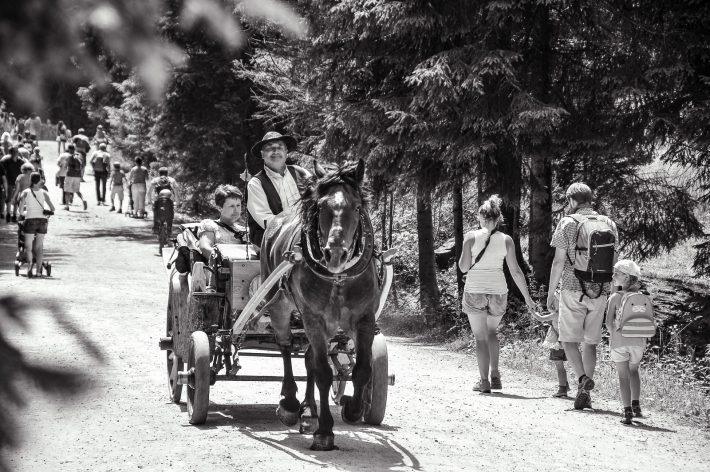
As we continued up, though, the girls started to tire. “How much longer do we have to walk?” they asked. I knew it was quite a long way to go, so I used the bribe I’d been saving for just that moment: “If you guys can make it all the way up to the shelter at the end of the path without complaining, we’ll take carriage back down.” Instant change in mood. And an instantly new topic for discussion: what type of horse would we like to pull our carriage?
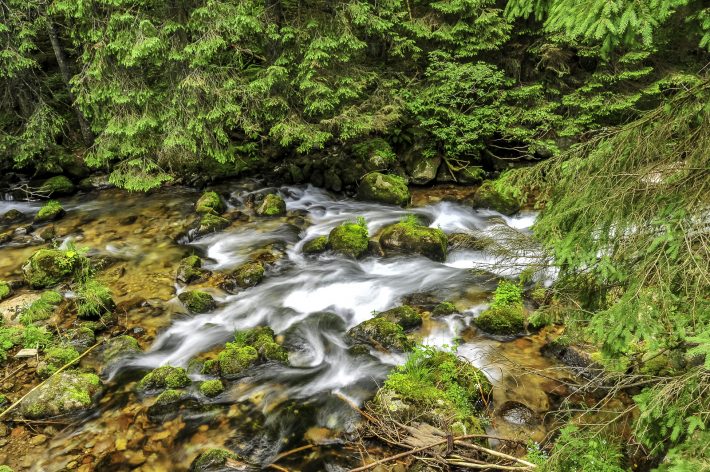
And so we continued, up, up and up. The paved road ended and the dirt road began. The dirt path ended and the steep stone-paved path began. Up. Up. Up.
It was at this point that we caught up to the young man in the wheel chair. He was struggling up the side of the stone, itself a challenge with rocks of various sizes providing a constant additional challenge to the climb. I mentioned this to the girls, not in a harsh, didactic way, but as a way both to remind them of how blessed they are and to point out the strength of some people. “Be thankful and ever grateful that you have legs that can tire, that can hurt and burn.”
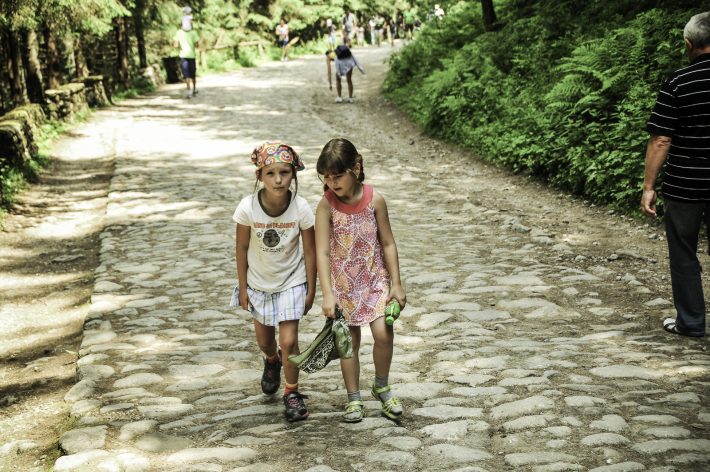
But still, nine kilometers — that’s a long way for a six- and seven-year-old. They made a brave effort to put up a strong face, but I could tell: they were getting exhausted.
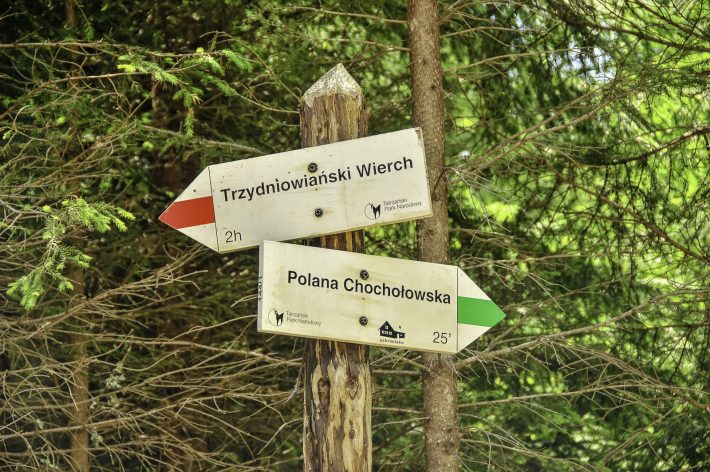
Finally, the sign: twenty-five minutes to go.
I knew what awaited them. K and I once rode our bikes from Jablonka to Dolina Chochołowska. I knew it was an incredibly beautiful glade, often with sheep grazing, their bells adding a tinny soundtrack to the view. Once we arrived, we sat in the shade for a while, drank some water, and prepared ourselves for the final climb to a small chapel at the base of the tree line.
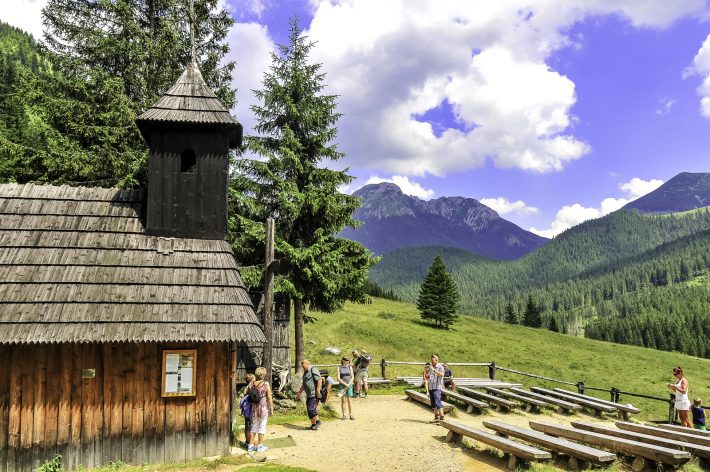
From there, we could look out at both directions of the valley, toward the Tatra Mountains towering before us and back at the valley we’d just passed through.
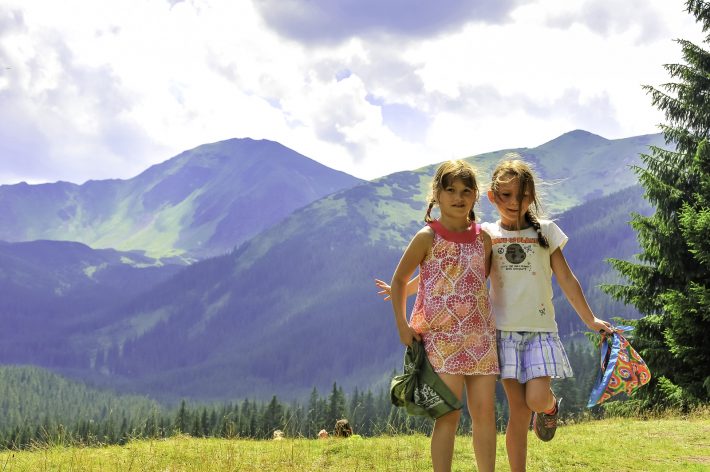
I wish I could say they stood in awe of the beauty. I wish I could say they suggested we sit and just soak in the view. I wish I could say they were left speechless. But they had other things on their minds, a second bribe: ice cream at the shelter.
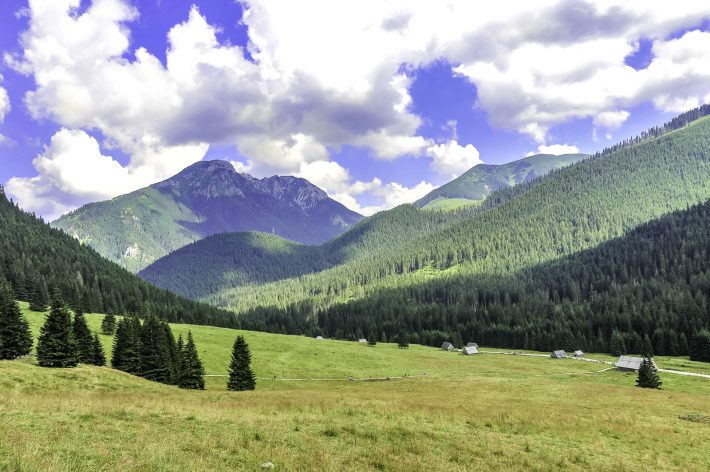
So we headed back down to the base of the glade, grabbed a little snack, and talked about how utterly exhausted they were.Â
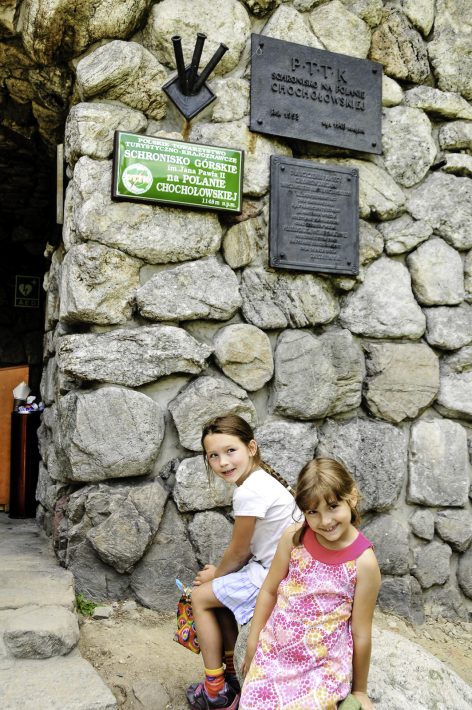
They clearly weren’t the only ones tired. Polish domestic tourism is so much different from its American counterpart. In North Carolina, you can drive all the way up to the summit of Mount Mitchell, the highest point in the state. In Poland, such an idea would be profane. Either you walk up, ride a bike up, or hire a horse-drawn carriage. Your car stays behind, as it should.
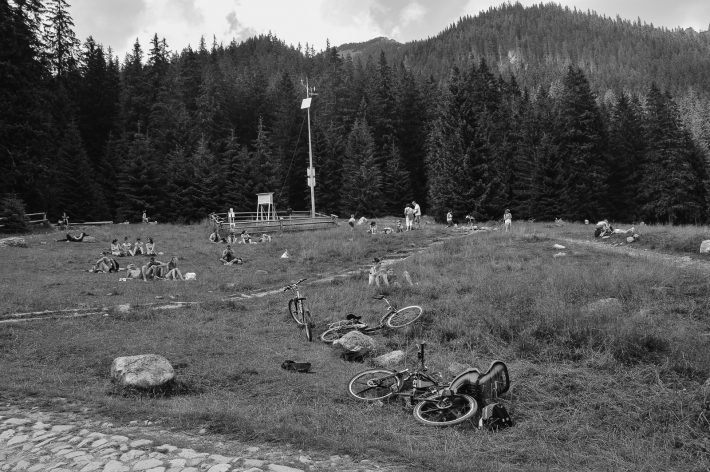
As we started back down, I thought about how easy bedtime promised to be tonight. “You girls look so tired that I bet we won’t even have to read to you tonight,” I laughed, and they both agreed.
“But remember, Wujek,” S reminded me, “we’re taking a carriage back to the bottom.”
And so we set off looking for a carriage. The first one we found was already hired. “Busy,” he literally said in Polish when I asked him how much a trip back down the valley would cost.
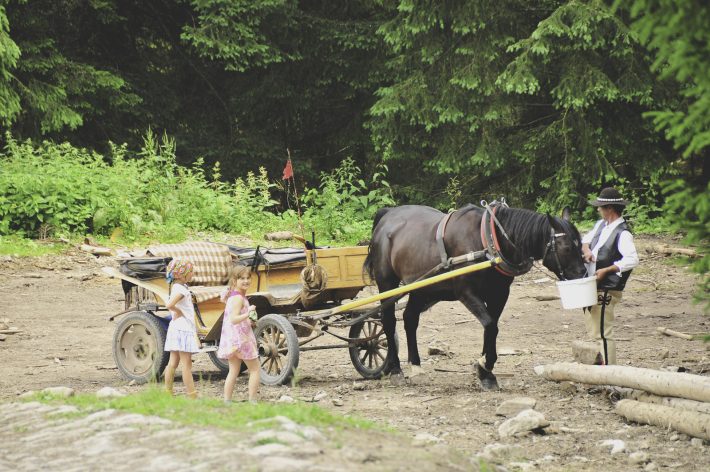
“Where can we find an available carriage?” I asked. He pointed down the valley: “You’ll just have to walk down and look for one.”
We continued down, and I started to wonder what the reaction would be if we couldn’t find one. The gentleman didn’t seem to indicate that there was any particular place where free carriages gather, waiting for passengers.
“You know,” I said, preparing the girls, “we might not find one.”
“And then what?”
“And then we’d have to walk all the way back down.”
The reaction: “Okay.” A surprise — they’re growing up, I thought.
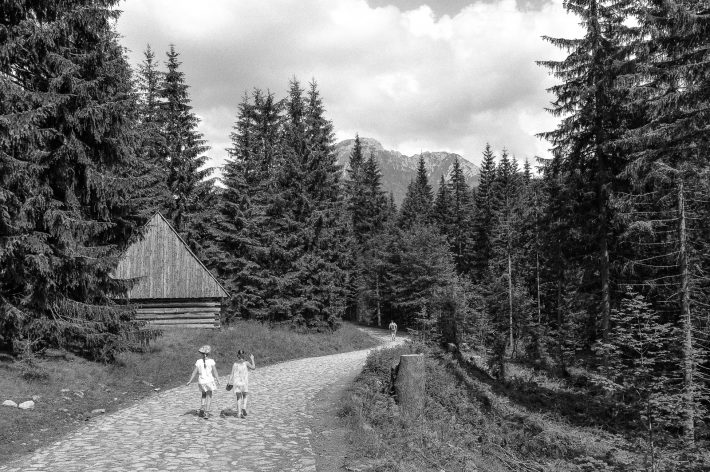
But thankfully, we find one only a few minutes later. The girls raced ahead to ask if he was free. After a few seconds, L turned and raced back up to me. “He’s available! He’s available! He’s available! He’s available!” I knew then that, no matter the cost (though I wasn’t expecting an exorbitant price), I would be hiring the gentleman.
“How much to the bottom of the valley?” I asked.
He’d been chatting with the girls, an older man probably approaching his mid-sixties. He looked at the girls with a smile, then said, “Eighty zloty.” About twenty-five dollars — a steal, I thought.
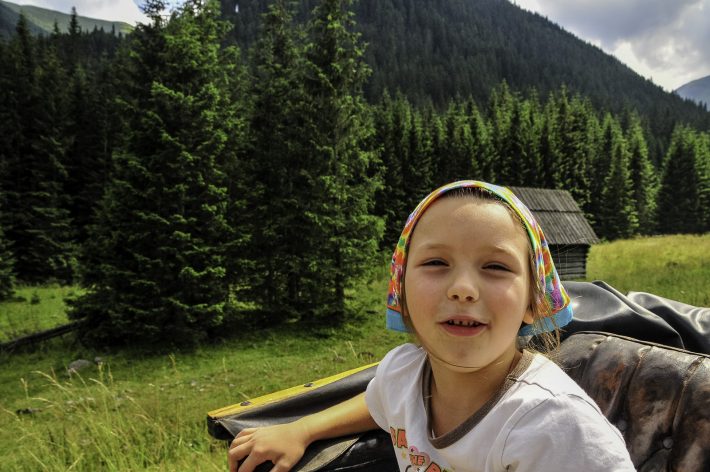
So we climbed in, and the girls immediately asked if one of them could sit beside the driver.
“Certainly, but only one.”
“Oh heavens,” I thought, “here it comes. ‘Me first! Me first!’ ‘No, me first!’ ‘No, me first!’ ‘No, me first!'” Sure enough, S and L on cue: “Me first!” Almost reading my mind, the driver said, “Well, why don’t you ride first and then we’ll switch?”
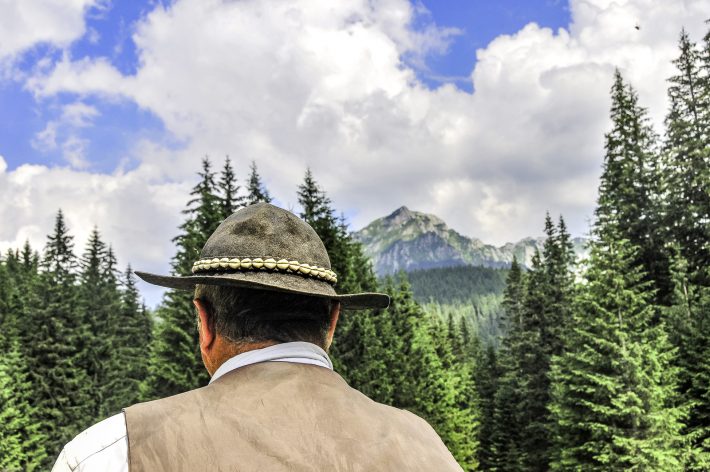
Clearly, this gentleman had had much experience with eager young riders.
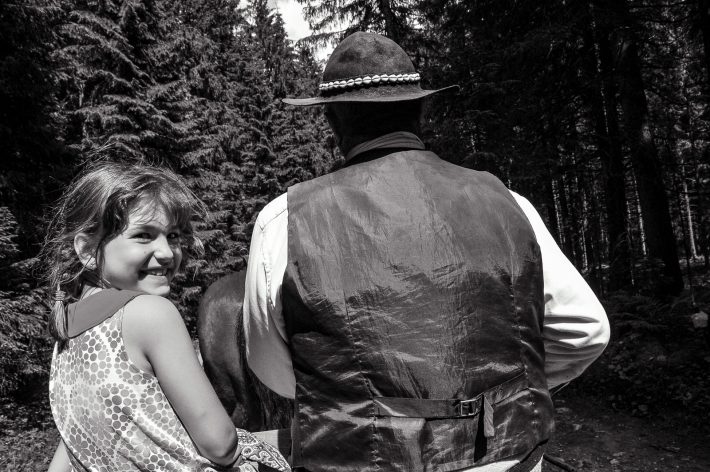
As we drove down, it was as if we were in Cinderella’s carriage: everyone cleared out of the way, many stopped briefly and glanced at us — just as we’d done during our ascent.
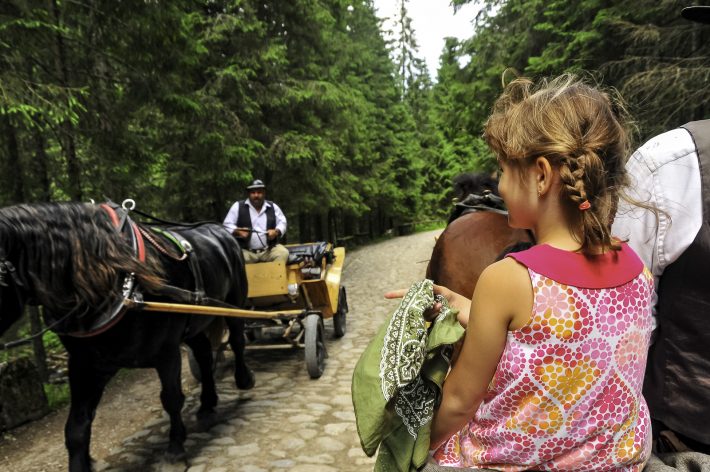
We passed other carriages and the drivers called out to each other. And all the while, L sat in the back, patiently waiting.
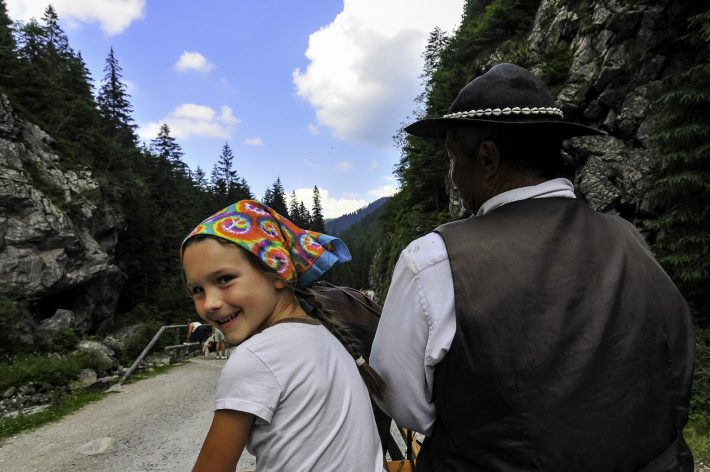
And about mid-way, the driver stopped, the girls switched to the drivers gentle reminders: “Slowly. Slowly” He shook the reins, called out to the horse, and we were on our way again.
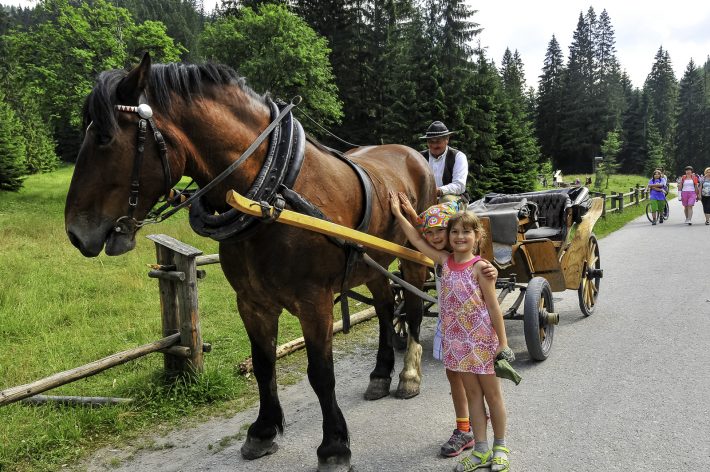
When the dirt path stopped, so did we, leaving us about another three kilometers to walk. But there was the river, the blessed bribe that kept them entertained and moving. They started a new game: patting their wet hands on rocks, they claimed them for their own. I stood and watched, wondering how long it would take for the rocks to dry, for the traces of our visit to disappear.
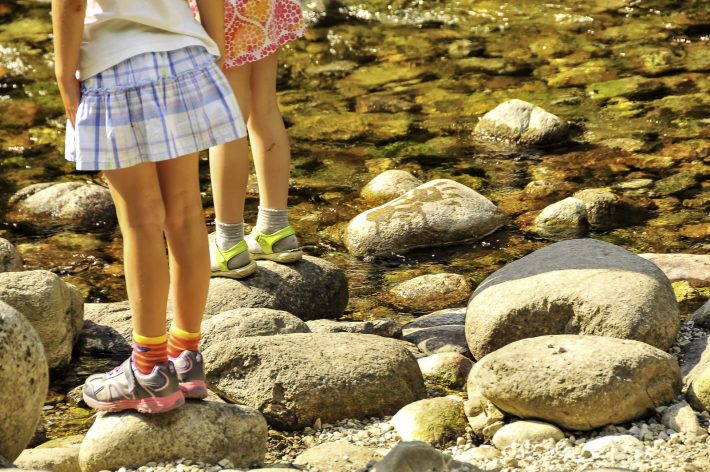
The irony of it all: we were vacationing, taking a break from our every day realities with thousands of other tourists, and all around us, people lived their own work-day realities. And it wasn’t just the cheese mongers and carriage drivers and bike rental attendants. Loggers pulled their freshly cut trees from out of the forest, giving us all a glimpse of what real work looks like.
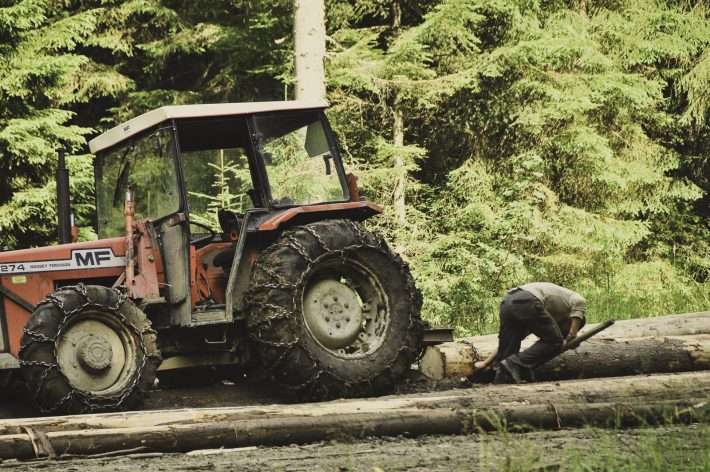
But in the end, we all left together, the loggers, the cyclists, the mothers pushing strollers, the brave little girls.
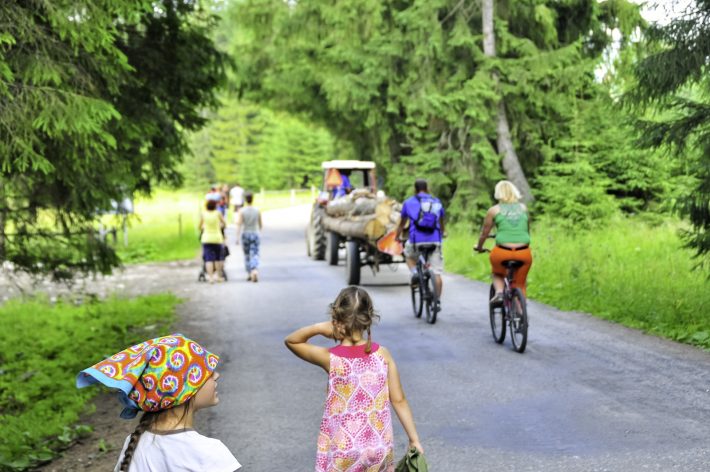
The marks they left on the rocks disappeared before we’d made it much more than a few dozen steps; the marks left on their souls will hopefully last much longer.
Beautifully done….I almost felt like we were right there with you! Fond memories of our ventures when we were in Poland!